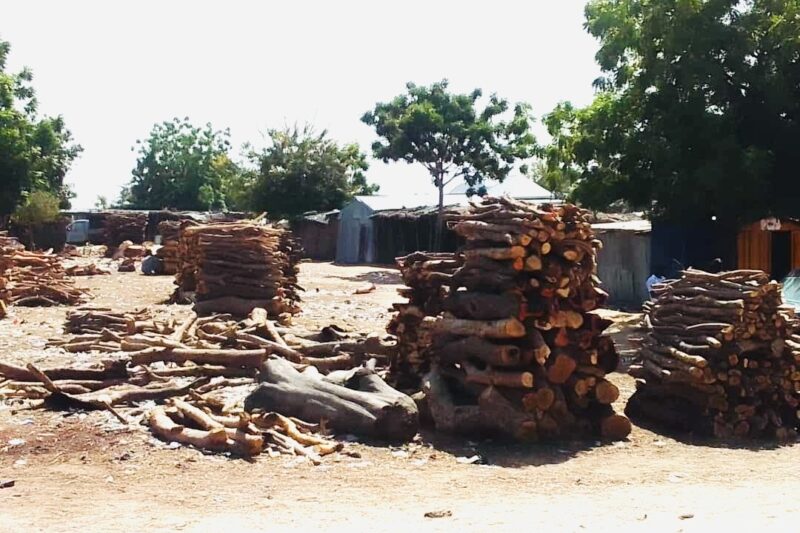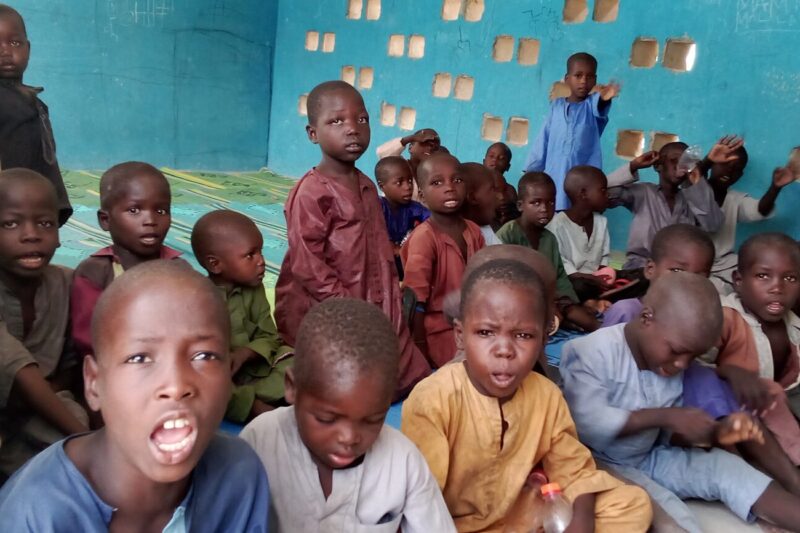Firewood association calls on Borno State governor to help the families of the deceased, saying they are poor and live hand to mouth … and now they have lost their breadwinners.
Seven firewood collectors have been killed in an improvised explosive device (IED) blast in Borno State.
The explosion occurred on the Maiduguri-Damboa highway at about 11am on Saturday, November 2.
Lawan Ali, an elderly firewood collector, told RNI that IED explosions were commonplace and that many people had been killed or badly maimed in similar blasts.
“These attacks, usually by insurgents, are part of an ongoing effort to destabilise the region. Despite efforts by the military and local security operatives to address the threat, these attacks keep happening.
“This time, firewood collectors were travelling as usual in two cars on the highway on their way to the forest in Damboa. Just outside Massa Fannari, one of the cars broke down on the side of the road. The other car overtook and shortly afterwards there was a loud explosion.
“The driver of the first vehicle, whose name is Bago, managed to get his car going and he and his passengers rushed to the wrecked vehicle. It was blown to bits and pieces. The corpses were hardly recognisable.
“They managed to pick up three corpses, which they took back to Dalwa to be buried.
“Family members asked Bago to return to the site of the explosion to retrieve the bodies of their loved ones.
“A young tricycle rider said he would go with them to get the remaining corpses. He told the relatives he was prepared to sacrifice his own life as long as they recovered the bodies.”
Ali said they were able to retrieve four more corpses.
“On their way back, soldiers stopped them at Dalwa. They searched the vehicle and interrogated them. Fortunately, they were empathetic and gave the driver permission to continue the journey.
“The traditional ruler of Dalwa conducted the funeral and the collectors were buried according to Islamic rites.”
Baba Gana, the public relations officer of the Firewood Collectors’ Association in Borno State, said the explosion was tragic.
“What happened was ordained by the Almighty. It is not something we could escape. We can’t blame anyone for what happened. We know security operatives are doing their best to prevent such explosions. Sometimes we cannot explain why these things happen; we just have to accept it was meant to be.
“This firewood business is the only source of income we have. It is the only skill we have acquired – to fell trees, turn it into firewood and then sell it. Most of us have been in this business for quite a while.
“We have lost farmers and firewood collectors in IED blasts before. Insurgents hide the devices so they are easy to miss. Security personnel conduct frequent patrols but even they sometimes do not see the IEDs on time.
“All we are asking is for the Borno State governor [Babagana Umara Zulum] to help the families of the victims who died in the bomb blast. These people are poor and live hand to mouth. Now their breadwinners have been taken from them. In the present cost-of-living crisis, we don’t know how they will survive.
“The driver who was killed in the blast has a wife at home with a newborn who has not even been named yet. She is distraught. She has lost her beloved husband.”
Bulama Bukar Buji, an executive at the association, said: “Even though this terrible tragedy happened, it will not stop others from going to collect firewood. It is their only source of income. As hard as it is, we just have to carry on as normal – even though we are in mourning.”
The chairman of the association, Alhaji Tujja Goni Ali Kopa, said: “What happened was meant to happen – we cannot run from it. And we do not question Allah’s way.
“We travel on the same route every day to collect firewood. Usually, we are escorted by security personnel. This time there was no security. But if it is meant to happen, security will not be able to stop it. We thank the Almighty that the road is safe again – for now at least.”
AYSHA MUSTAPHA KOLOMI








